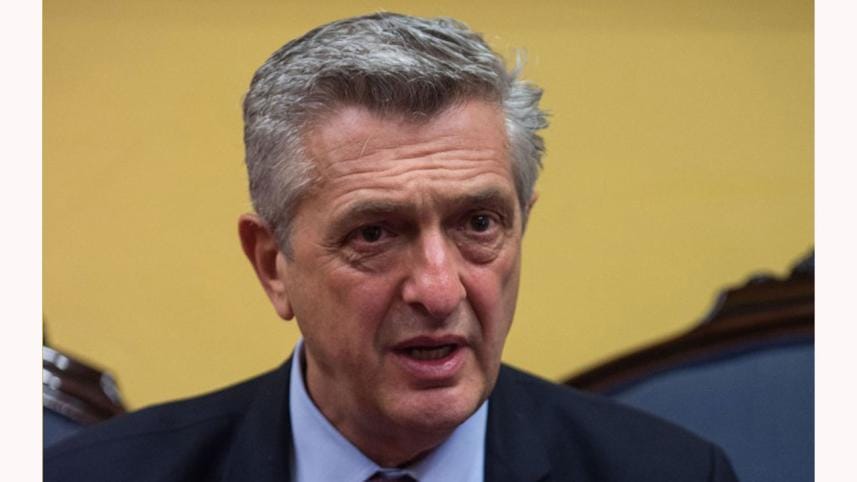UNHCR chief's trip postponed

Myanmar has postponed a planned visit by the UN refugee chief to Rakhine state following renewed fighting between security forces and insurgents, a spokesman said Monday.
UN High Commissioner for Refugees Filippo Grandi was due to visit last week but Myanmar authorities scrapped the trip to Rakhine, where hundreds of thousands of Rohingya Muslims were driven out in a military crackdown that started in 2017.
The troubled western state has seen fighting flare again in recent weeks, this time between security forces and the Arakan Army (AA), an ethnic Rakhine armed group calling for more autonomy for the state's Rakhine Buddhist population.
Read more: ‘Aid groups barred in Rakhine sparking security concern’
Thirteen police officers were killed by AA militants in January 4 attacks on police posts near the Bangladeshi border.
"Based on assessment of Myanmar authorities of the security situation in Rakhine, the visit has been postponed," said UNHCR spokesman Andrej Mahecic.
Britain is expected to raise the issue at the UN Security Council later this week, according to diplomats.
The decision to delay Grandi's trip and uncertainty surrounding a separate planned visit by the UN envoy Christine Schraner Burgener to Myanmar is fuelling concerns that authorities are backtracking on their commitments to address the Rohingya refugee crisis.
"They have done nothing at all and didn't particularly want that to be exposed," said a Security Council diplomat of the decision to postpone Grandi's visit.
Myanmar's mission to the United Nations did not immediately respond to requests for information.
Britain in December circulated a draft Security Council resolution on Myanmar that would have set a deadline for authorities to roll out a strategy for addressing the Rohingya crisis.
China, backed by Russia, however raised strong objections and refused to take part in negotiations, suggesting it was ready to use its veto at the council to block the measure.
Myanmar's violent military campaign in 2017 forced more than 720,000 Rohingya across the border to Bangladesh, with refugees bringing accounts of murder, rape and arson.
Britain, France, the United States and UN chief Antonio Guterres have described the campaign as ethnic cleansing while UN investigators have called for top generals to be investigated for genocide.
Rohingya in Buddhist-majority Myanmar have suffered decades of persecution and are denied citizenship rights.
Myanmar has denied that it has singled out the Rohingya and described its army operations as a campaign to root out terrorists.



 For all latest news, follow The Daily Star's Google News channel.
For all latest news, follow The Daily Star's Google News channel.
Comments